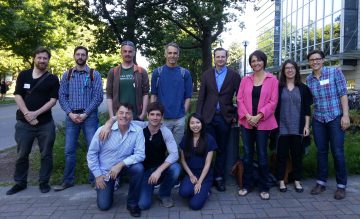Tylenol May Help Ease The Pain Of Hurt Feelings
Nobody likes the feeling of being left out, and when it happens, we tend to describe these experiences with the same words we use to talk about the physical pain of, say, a toothache. “People say, ‘Oh, that hurts,’ ” says Nathan DeWall, a professor of psychology at the University of Kentucky. DeWall and his […]
Strength in numbers when resisting forbidden fruit
A new study from the University of British Columbia helps explain how people become obsessed with forbidden pleasures. The study, which will appear in an upcoming edition of Cognitive, Affective and Behavioral Neuroscience journal, shows that when people are forbidden from something, it takes on a new level of focus. Grace Truong, UBC Dept. of […]
WATCH: Global News report on ‘Chemo Brain’
WATCH: Dr. Todd Handy confirms “chemo brain” is a real thing and discusses how cancer patients are affected by treatment. There’s hair loss, changes to your appetite and incessant fatigue – chemotherapy is a gruelling process. But new Canadian research is warning that another side effect is difficulty concentrating. In a new study, scientists out […]
‘Chemo Brain’ is real
UBC research shows that chemotherapy can lead to excessive mind wandering and an inability to concentrate. Dubbed ‘chemo-brain,’ the negative cognitive effects of the cancer treatment have long been suspected, but the UBC study is the first to explain why patients have difficulty paying attention. Breast cancer survivors were asked to complete a set of […]
The painkiller acetaminophen may hamper your ability to notice errors
It’s been known for more than a century that acetaminophen is an effective painkiller, but a new study shows it could also be impeding error-detection in the brain. The research, authored by a team including Dan Randles, a University of Toronto postdoctoral fellow, and Todd Handy and Steven Heine from the University of British Columbia, is […]




